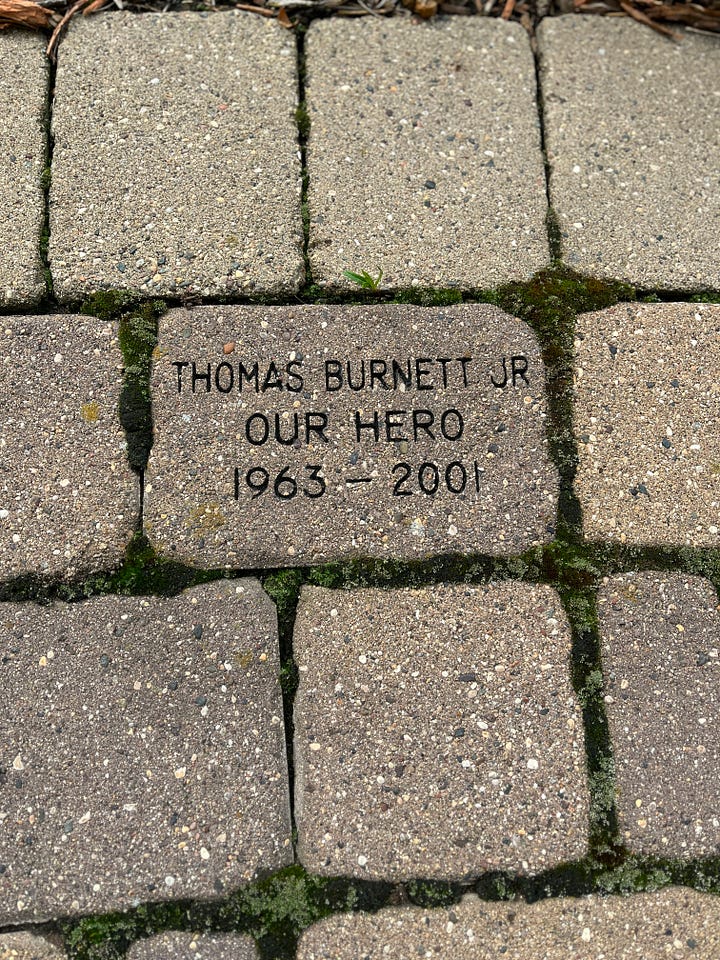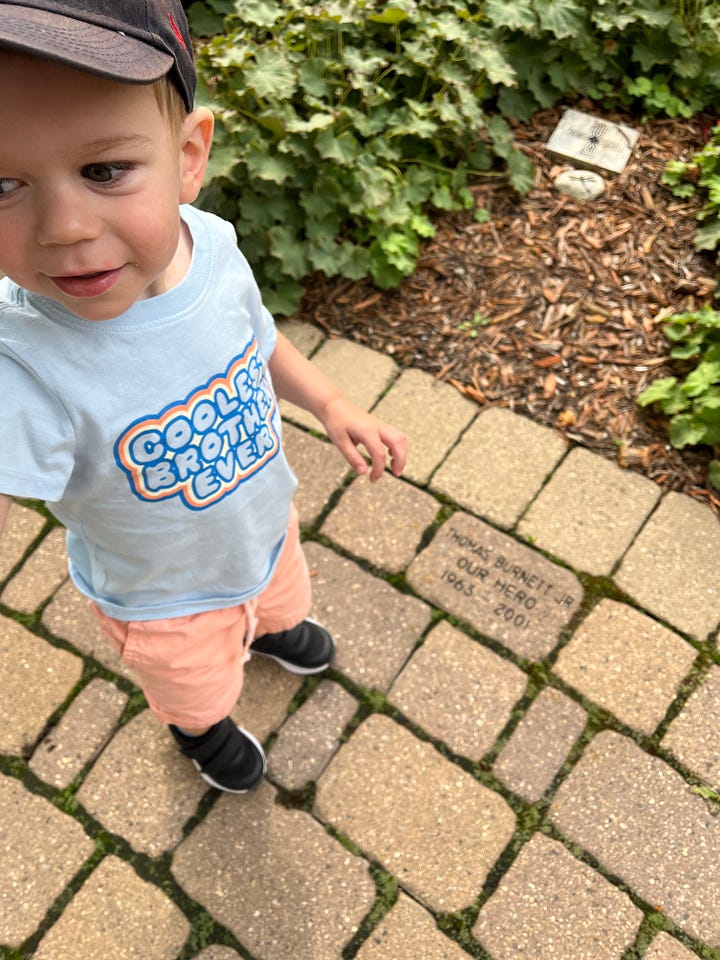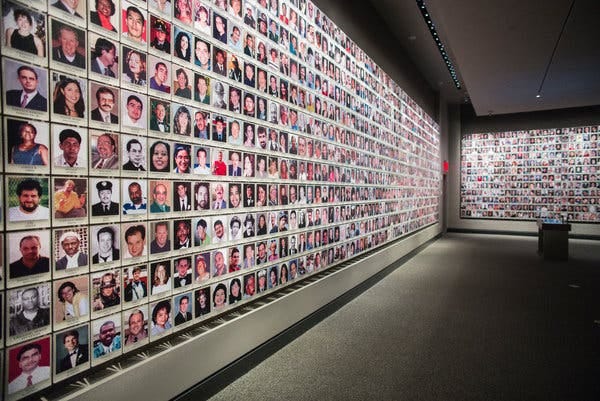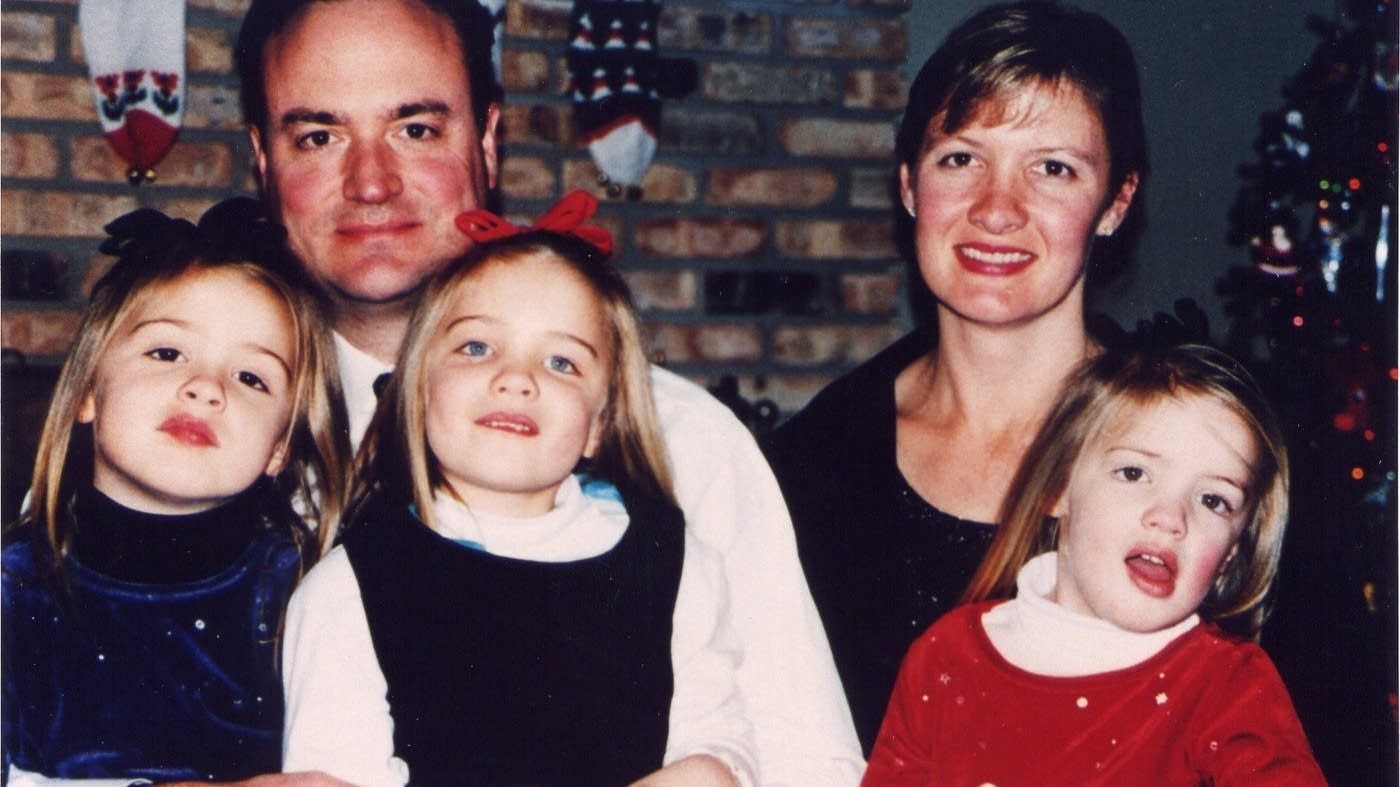September is tricky. A crisp, cool evening breeze can dip the temperature at night but give way to stale humidity as the sun hangs overhead, not yet ready to surrender the August-like midday heat to October’s damp chill. People are busy reconditioning to school schedules, returning to work after vacations, or preparing for the inevitable winter that seems to trigger an inherent animalistic instinct like migrating birds. So it was a clear day with clearer consciousness that the world collapsed in New York City, Washington, D.C., and Stonycreek Township, Pennsylvania.
Twenty-two years after the terror attacks on September 11, America declared, “Never Forget.” The question, apart from those closest to the 2,977 people who died on a Tuesday morning 22 years ago who have their own questions that — with the cruelty of fate and burden of penitence simply for the act of living — will never be answered in life is, what does that mean?
Is it about that day? The day about which there are documentaries, films, books, and recollections, all of which are useful to tell the story of the terrorist attacks, none of which can unlock for the observer the emotional terror, the mix of anger, shock, and grief that overflowed into the streets and rained down on every life left as a witness to the implosion of what we took for granted on September 10th. The images and sounds on film and in print cannot carry the weight of a million tears and a thousand cries of anguish. Those who were there will never forget, but the following generations — those too young to have a memory, and those who weren’t yet born — have nothing to forget.
Does its meaning lie somewhere in the life that existed in America before? The simple things: We could wait at an airport gate with flowers and an embrace for a loved one. We could go to work in the morning and take for granted the kiss goodbye and put off for another day the phone call to a parent or a sibling. Singular tragedies happen every day, but we can compartmentalize them, turn them off and shut them away with the flick of a TV remote or a turn of the newspaper page. 9/11 was too big, at least for a while. We could think of America as separate from a world at war. The closest to collective conscience was the Persian Gulf War or the stories from fathers and grandfathers of Vietnam or World War II, which seemed as worn and faded as their uniforms in the closet and the deteriorating memories of those who were telling them.
The more complex: We were largely satisfied that those in government had our best interests at heart. We thought the blanket of security was a weightless comfort. We thought we were untouchable and secure in our naivete. What war looked and felt like, and how far vengeance and justice could be used interchangeably and righteously.
Perhaps it forces us to break from our usual and recent practice of thinking of every event as a national grievance or outrage. Now, every headline swallows the individual being, churning us through the machinations of homogenization or tossing us into political buckets. We forget the faces of those we lost. We forget those who are left to collect the fragments of life they had before and desperately hold on to what they mercilessly lost. Where there used to be a living, breathing person to laugh with, to hold our hand, to be angry with, or say I’m sorry to, there is only a picture, a headstone, a garment, a memory.
Perhaps “Never Forget” is something deeper. The 2,977 lives lost were taken from us and took a part of us. 9/11 changed the mindset of the people who lived through it and reflected the environment of what came before and the reaction to everything that came after. There aren’t neat lines drawn between 9/11 and the current cultural, social, and political chaos that is occurring in America now. Rather, we’re living in a pendulum that those in power would rather see blasted off-course into the heavens than swing back to a state of balance between natural rights, freedom of thought, liberty, and law and order. We can never fully go back, but we can remember what we lost and who we lost. We should never take for granted the life we live today because it may not exist in the same way tomorrow — that there were people who sacrificed their tomorrow for our today.
One of those was Tom Burnett. He was twenty years older, but we graduated from the same high school and college. He attended the Catholic church just a few miles from where I live now. He was a passenger on United Flight 93. He was a hero. He traded his tomorrow for my today, my family’s today, and your family’s today. He understood in that one instant that America was worth the sacrifice.
There are a million small things I get to do, and my kids get to do, that he does not. I can hold my babies, take my kids to baseball games, sit around a campfire, and enjoy Thanksgiving dinner when he cannot. Tom Burnett faced an unimaginable choice and made an impossible decision so that I never had to. He did it because America is a country worthy of such sacrifice. It is a great nation because it is made of men and women who believe in America’s enduring goodness and founding principles, are confident in each other, and are willing to make that sacrifice on its behalf to do the hard thing so their kids don’t have to. I met hundreds of those men and women in the Marine Corps; if you ever doubt that America doesn’t make exceptional people anymore, the Corps is a good place to look. But as Tom Burnett and his fellow passengers proved, one doesn’t have to wear a uniform to be a hero.
Never Forget means to live a life worthy of those heroes and their selflessness and raising the next generation to do the same — and help them understand that if they made such a sacrifice, it would never be in vain.


Below is the transcript of Tom Burnett’s calls to his wife, Deena, from Flight 93. Please read it.
6:27 a.m.( pacific time) First cell phone call from Tom to Deena
Deena: Hello
Tom: Deena
Deena: Tom, are you O.K.?
Tom: No, I’m not. I’m on an airplane that has been hijacked.
Deena: Hijacked?
Tom: Yes, They just knifed a guy.
Deena: A passenger?
Tom: Yes.
Deena: Where are you? Are you in the air?
Tom: Yes, yes, just listen. Our airplane has been hijacked. It’s United Flight 93 from Newark to San Francisco. We are in the air. The hijackers have already knifed a guy, one of them has a gun, they are telling us there is a bomb on board, please call the authorities. He hung up.
6:31 Deena calls 911
6:34 The phone rang in on call waiting, Tom’s second cell phone call.
Deena: Hello
Tom: They’re in the cockpit. The guy they knifed is dead.
Deena: He’s dead?
Tom: Yes. I tried to help him, but I couldn’t get a pulse.
Deena: Tom, they are hijacking planes all up and down the east coast. They are taking them and hitting designated targets. They’ve already hit both towers of the World Trade Center.
Tom: They’re talking about crashing this plane. (a pause) Oh my God. It’s a suicide mission…(he then tells people sitting around him)
Deena: Who are you talking to?
Tom: My seatmate. Do you know which airline is involved?
Deena: No, they don’t know if they’re commercial airlines or not. The newsreporters are speculating cargo planes, private planes and commercial. No one knows.
Tom: How many planes are there?
Deena: They’re not sure, at least three. Maybe more.
Tom: O.K….O.K….Do you know who is involved?
Deena: No.
Tom: We’re turning back toward New York. We’re going back to the World Trade Center. No, wait, we’re turning back the other way. We’re going south.
Deena: What do you see?
Tom: Just a minute, I’m looking. I don’t see anything, we’re over a rural area. It’s just fields. I’ve gotta go.
He hung up.
6:45 a.m. Third cell phone call from Tom to Deena
Tom: Deena
Deena: Tom, you’re O.K. (I thought at this point he had just survived the Pentagon plane crash).
Tom: No, I’m not.
Deena: They just hit the Pentagon.
Tom: (tells people sitting around him “They just hit the Pentagon.”)
Tom: O.K….O.K. What else can you tell me?
Deena: They think five airplanes have been hijacked. One is still on the ground. They believe all of them are commercial planes. I haven’t heard them say which airline, but all of them have originated on the east coast.
Tom: Do you know who is involved?
Deena: No
Tom: What is the probability of their having a bomb on board? I don’t think they have one. I think they’re just telling us that for crowd control.
Deena: A plane can survive a bomb if it’s in the right place.
Tom: Did you call the authorities?
Deena: Yes, they didn’t know anything about your plane.
Tom: They’re talking about crashing this plane into the ground. We have to do something. I’m putting a plan together.
Deena: Who’s helping you?
Tom: Different people. Several people. There’s a group of us. Don’t worry. I’ll call you back.
6:54 a.m. Fourth cell phone call to Tom to Deena
Deena: Tom?
Tom: Hi. Anything new?
Deena: No
Tom: Where are the kids?
Deena: They’re fine. They’re sitting at the table having breakfast. They’re asking to talk to you.
Tom: Tell them I’ll talk to them later
Deena: I called your parents. They know your plane has been hijacked.
Tom: Oh…you shouldn’t have worried them. How are they doing?
Deena: They’re O.K.. Mary and Martha are with them.
Tom: Good. (a long quiet pause) We’re waiting until we’re over a rural area. We’re going to take back the airplane.
Deena: No! Sit down, be still, be quiet, and don’t draw attention to yourself! (The exact words taught to me by Delta Airlines Flight Attendant Training).
Tom: Deena! If they’re going to crash this plane into the ground, we’re going to have do something!
Deena: What about the authorities?
Tom: We can’t wait for the authorities. I don’t know what they could do anyway.
It’s up to us. I think we can do it.
Deena: What do you want me to do?
Tom: Pray, Deena, just pray.
Deena: (after a long pause) I love you.
Tom: Don’t worry, we’re going to do something.
He hung up








Jenna,
Thank you for another excellent essay. Including Hero Tom Burnett’s somber transcript set a lasting & moving tone.
As I read your “Patriot Day” essay, like most people, I remembered where I was & what I was thinking as I heard the news. I distinctly recall being passed on a north bound highway to NYC by what seemed like multiple speeding convoys of black SUVs, presumably filled with federal agents.
I often wonder if we still have a few good men & woman like Tom Burnett who will step into the breach when the inevitable need arises again? I try to be optimistic & hope we do.
We were very fortunate to attend an event this past weekend with thousands (yes, thousands) of college-age students & their families. They were from many different ethnic backgrounds & communities. Judging from the vehicles in the various surrounding parking lots there was an authentic representation from well-worn to well-off participants. Each individual we personally witnessed or had direct contact were kind, courteous & well-mannered. America at its best.
We left for home with more than just ‘optimism’ — we left with ‘confidence.’ We still have the right stuff. America will still have heroes.
As I understand, similar events occur across our country. Apparently The Fourth Estate chooses not to tell these stories of America. It doesn’t fit the narrative of their political agents agenda.
All the more reason “Never Forget means to live a life worthy of those heroes.” America will never recoup what the 911 terrorists cost us. Pray for Mr. Tom Burnett’s grown family. It cost them everything.
Thank you Jenna for sharing all of your considerable talents. Your writing lifts our spirits & never disappoints.
A great post... we'll done!